Fleet
We own and ship manage the Dry Bulk vessel (in variety sections) and Container vessels, Chip carriers, and Product Carriers.

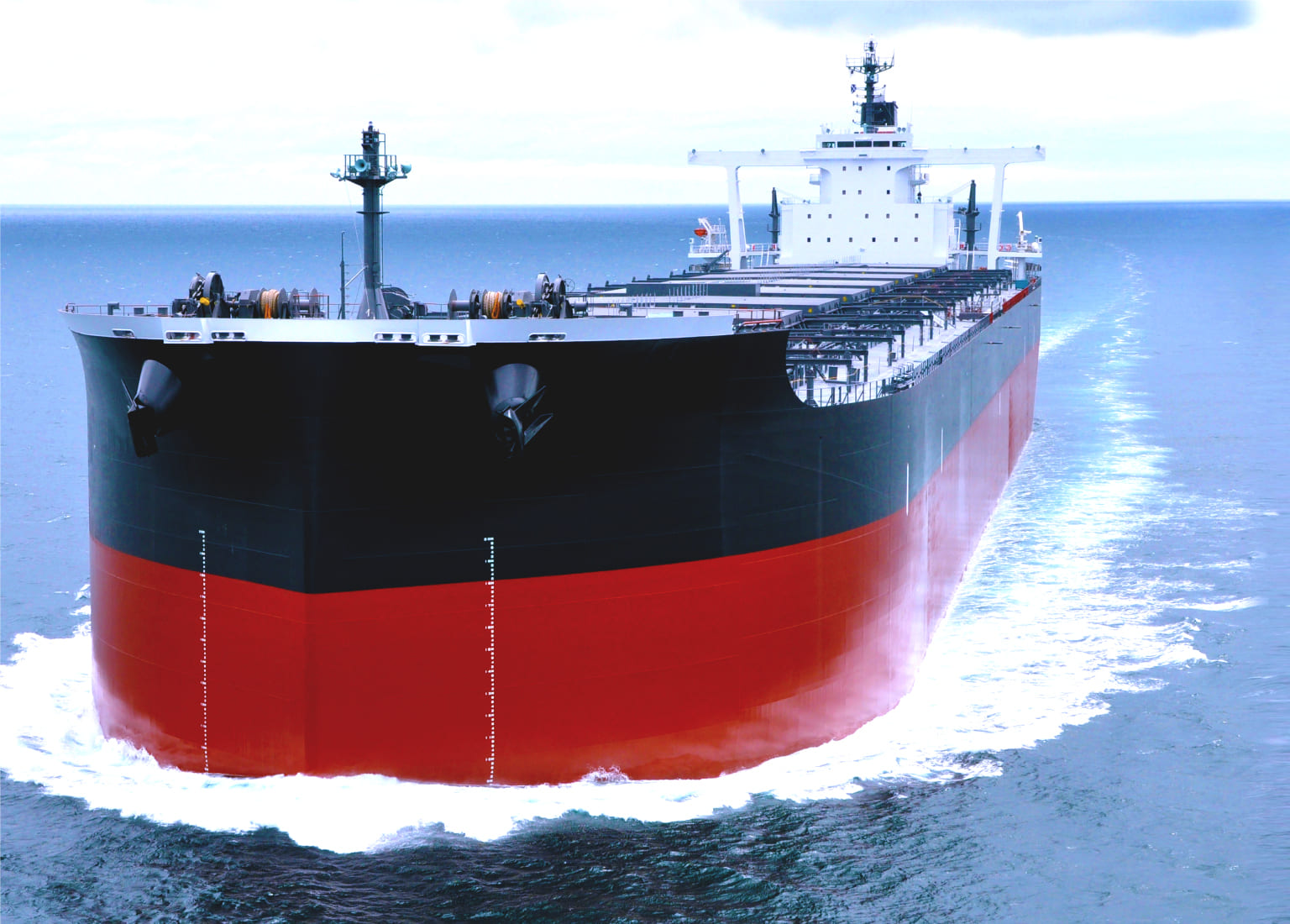
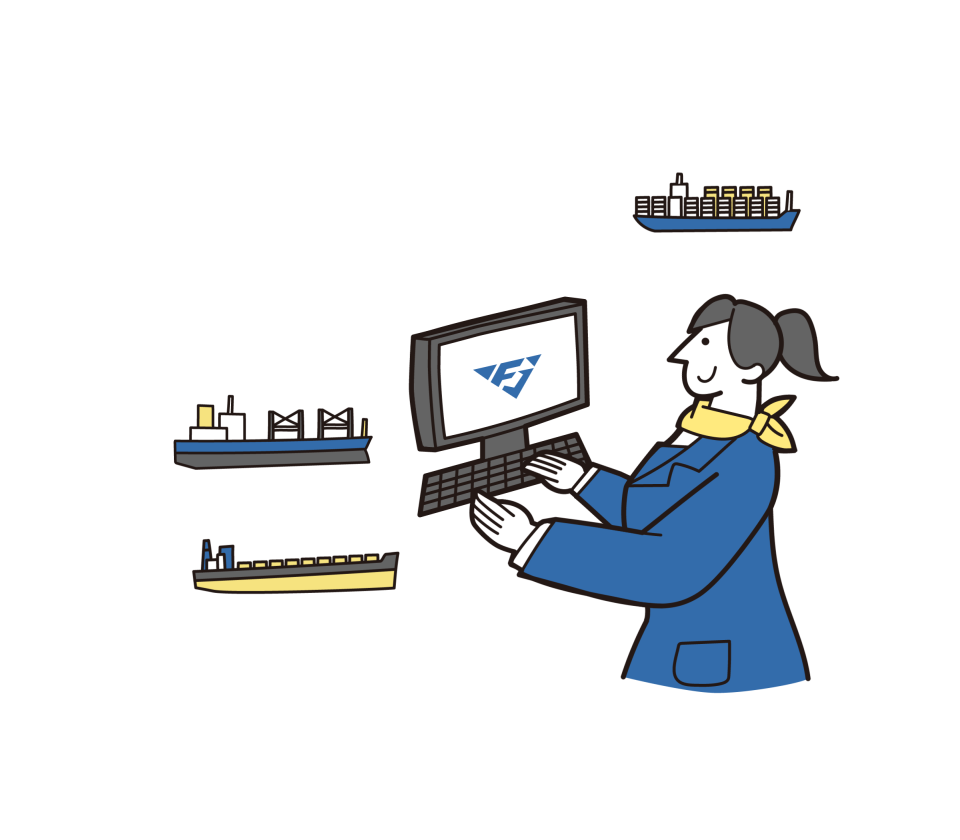
We own and ship manage the Dry Bulk vessel (in variety sections) and Container vessels, Chip carriers, and Product Carriers.
Bulk carriers, generally called bulkers in the marine transport industry, have cargo holds to transport a variety of cargo in bulk, such as coal, iron ore, titanium ore, bauxite, steel products, fertilizers, wheat, corn, soybeans, salt and sugar, without requiring them to be packed into bags or boxes.

Bulk carriers, generally called bulkers in the marine transport industry, have cargo holds to transport a variety of cargo in bulk, such as coal, iron ore, titanium ore, bauxite, steel products, fertilizers, wheat, corn, soybeans, salt and sugar, without requiring them to be packed into bags or boxes.

Bulk carriers, generally called bulkers in the marine transport industry, have cargo holds to transport a variety of cargo in bulk, such as coal, iron ore, titanium ore, bauxite, steel products, fertilizers, wheat, corn, soybeans, salt and sugar, without requiring them to be packed into bags or boxes.

Bulk carriers, generally called bulkers in the marine transport industry, have cargo holds to transport a variety of cargo in bulk, such as coal, iron ore, titanium ore, bauxite, steel products, fertilizers, wheat, corn, soybeans, salt and sugar, without requiring them to be packed into bags or boxes.

Bulk carriers, generally called bulkers in the marine transport industry, have cargo holds to transport a variety of cargo in bulk, such as coal, iron ore, titanium ore, bauxite, steel products, fertilizers, wheat, corn, soybeans, salt and sugar, without requiring them to be packed into bags or boxes.

Bulk carriers, generally called bulkers in the marine transport industry, have cargo holds to transport a variety of cargo in bulk, such as coal, iron ore, titanium ore, bauxite, steel products, fertilizers, wheat, corn, soybeans, salt and sugar, without requiring them to be packed into bags or boxes.
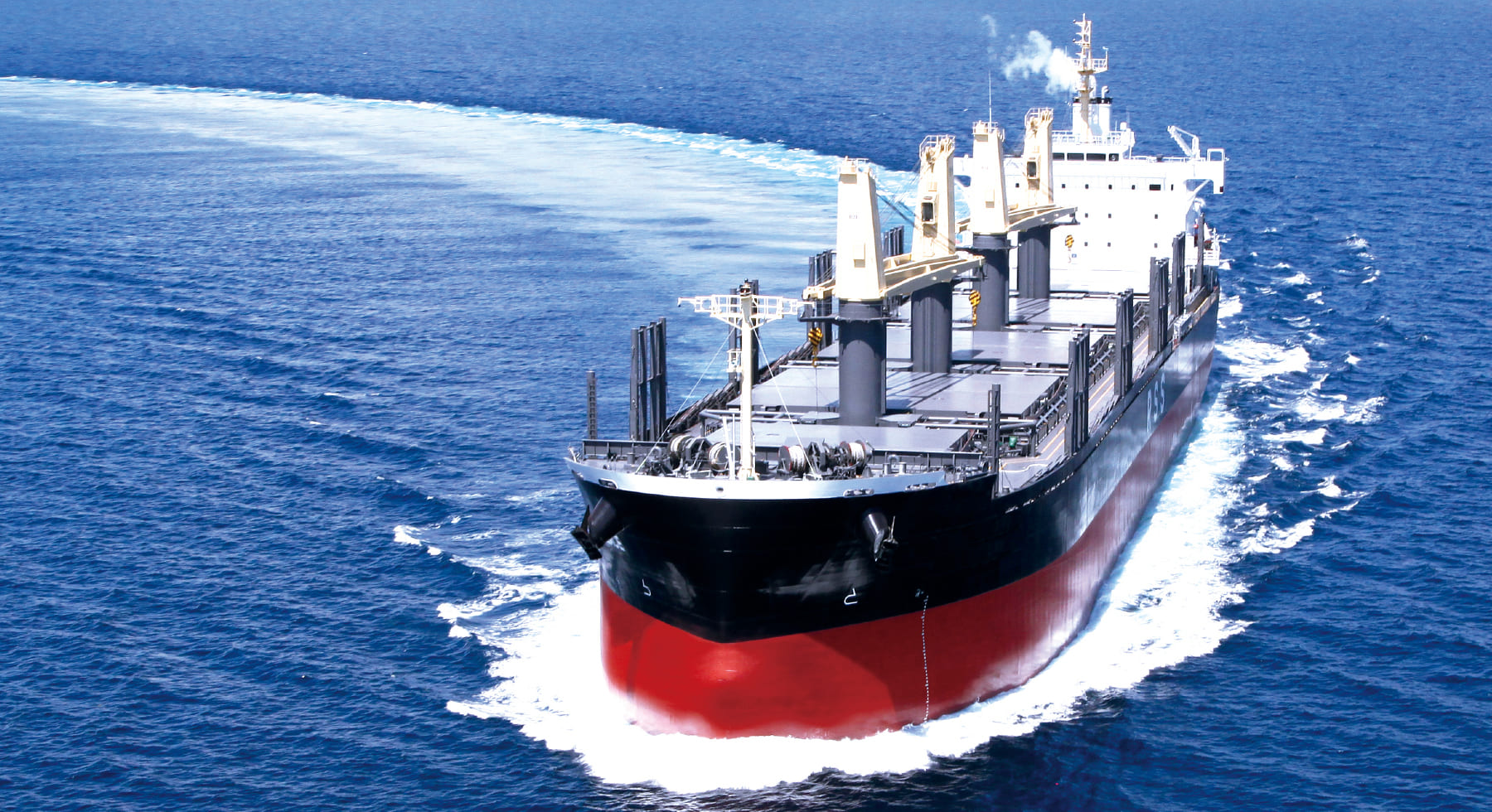
Bulk carriers, generally called bulkers in the marine transport industry, have cargo holds to transport a variety of cargo in bulk, such as coal, iron ore, titanium ore, bauxite, steel products, fertilizers, wheat, corn, soybeans, salt and sugar, without requiring them to be packed into bags or boxes.

VLOC(Very Large Ore Carrier)
Very Large Ore Carriers have a carrying capacity of approx. 250,000mt which is larger than Capesize Bulkers. VLOCs are designed to transport heavy ore with a smaller cargo hold capacity. These type of ships are gearless and basically constructed with 9 cargo holds.
Capesize Bulker
Capesize vessels are designed to transport large volume of dry unpacked goods with a carrying capacity of approx.
200,000mt. They carry out cargo operation using shore cranes at ports as they are basically not equipped with loading and discharging equipment.
These type of ships have basically 9 cargo holds.
Post-Panamax Bulker
Post-Panamax vessels have a larger beam than a standard Panamax vessel with 5 cargo holds. Larger size of hatch openings provide flexibility in handling loading and unloading equipment, which increase efficiency in cargo operation.
Panamax Bulker
Panamax vessels are the max sized ship that are capable of passing through the Panama Canal. Most Panamax vessels or larger vessel do not normally have self-dischargers such as crane or conveyors. Panamax Bulkers are basically constructed with 7 cargo holds and most popular size of ocean going ship.
Handymax Bulker
Handymax vessels are bulk carrier with loading and unloading equipment (cranes and grab bucket). This size of carriers mainly engage in short transport service as their size allows to call at small capacity ports which larger size of ships are unable to enter. Generally, they are equipped with 4 cranes and 5 cargo holds.
Log Carrier
Log Carriers are designed to transport timber cargo with loading and unloading equipment which allow them to load or discharge cargo in ports without shore-based facility. Size of Log Carrier is almost equal to the size of Handy type ship. Log Carrier features stanchions which are installed at both side of the deck for loading timber products.
Woodchip Carrier
Ships specializes in transporting wood chips, the raw material for paper.
Cargo operation is carried out using the belt conveyor and grab buckets of deck cranes.
Container carriers are dedicated to the transportation of containers filled with cargo.
The largest container carrier can load more than 8,000 TEU (Twenty-foot Equivalent Unit) containers. Container carriers in regular liner service are operated under tight schedules.
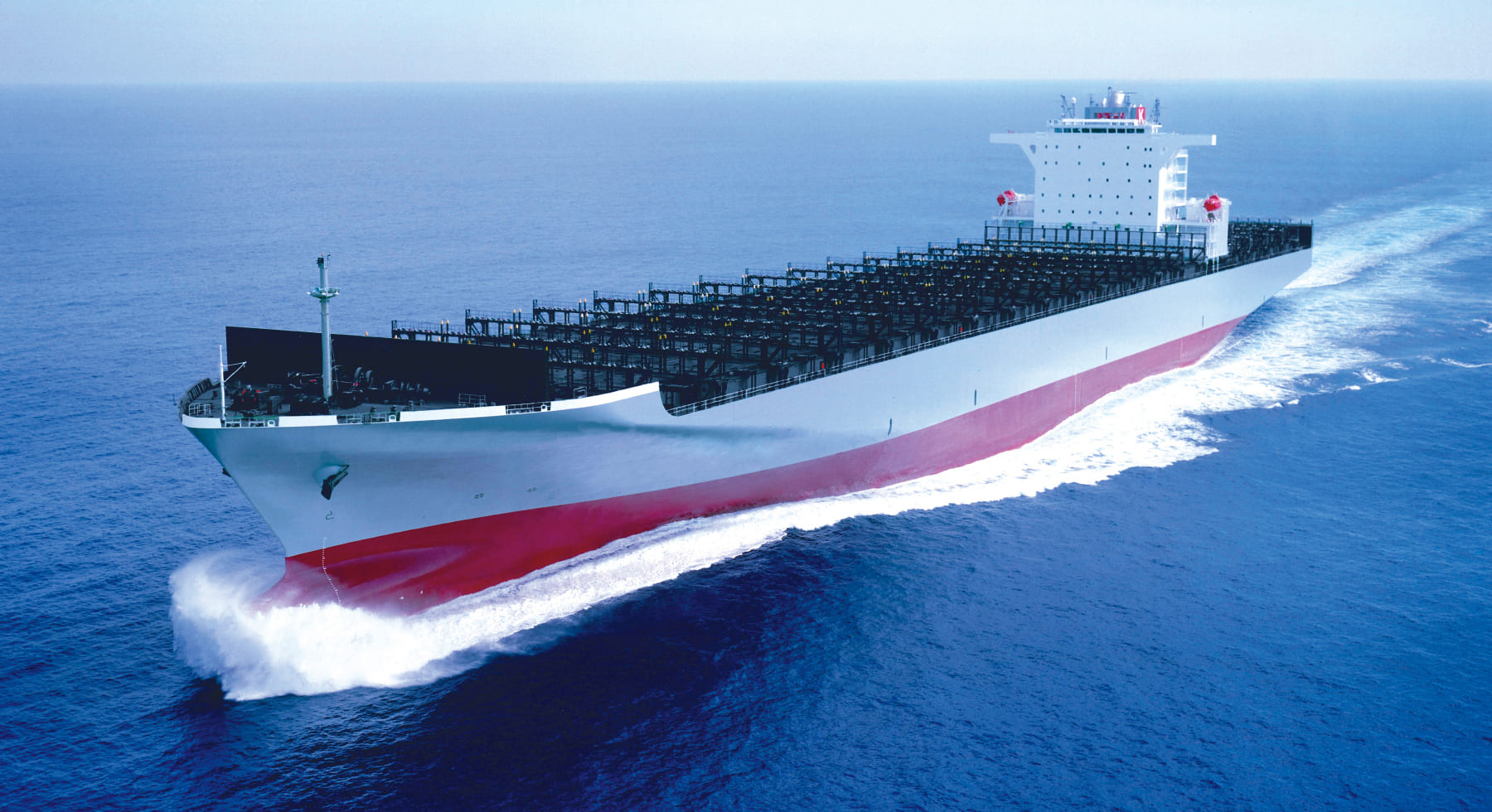
Container carriers are dedicated to the transportation of containers filled with cargo.
The largest container carrier can load more than 8,000 TEU (Twenty-foot Equivalent Unit) containers. Container carriers in regular liner service are operated under tight schedules.
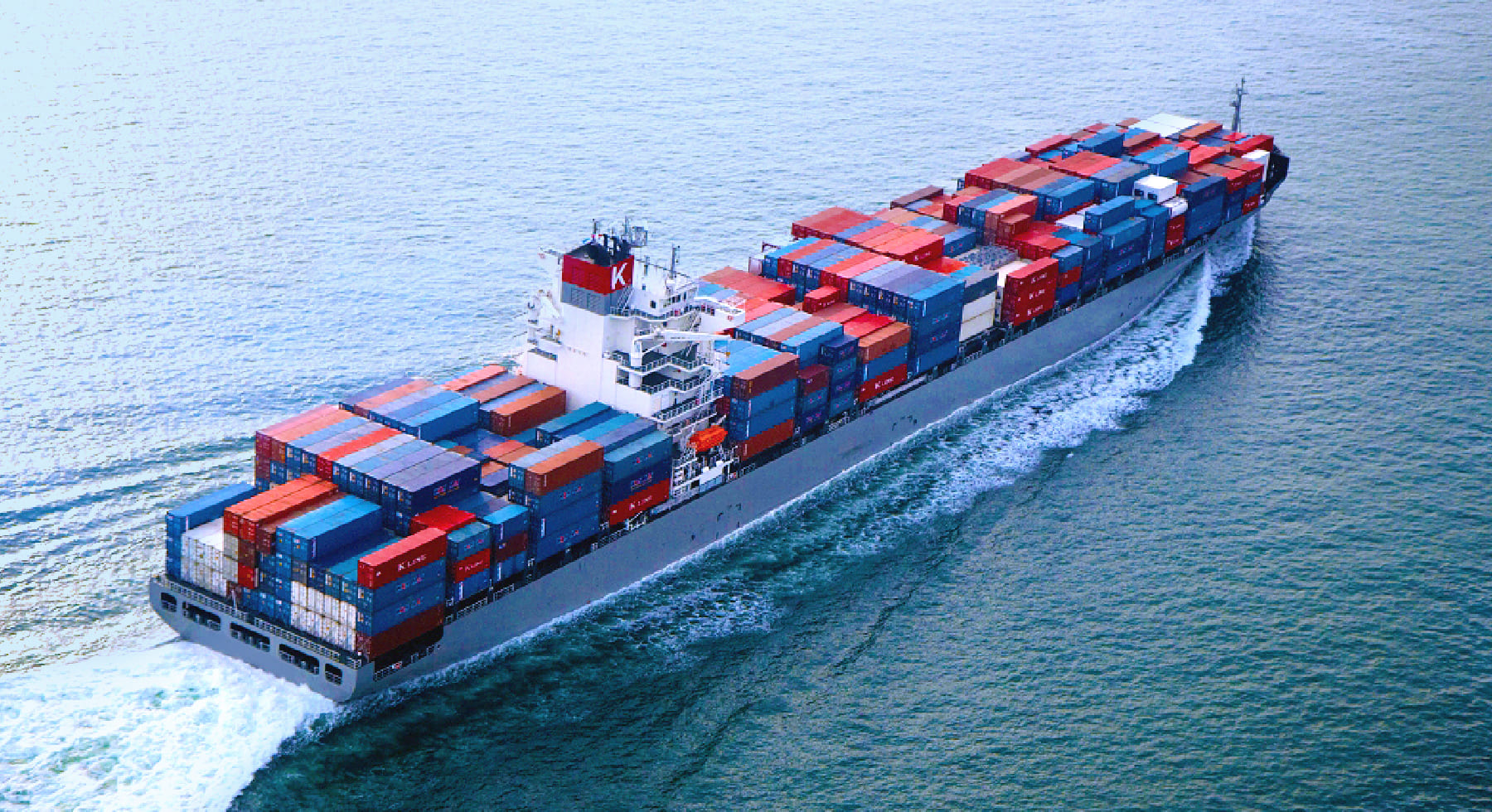
8400TEU
A large container ship capable of carrying approximately 8,400 20-foot containers, of which 800 are refrigerated containers.
The ship is capable of passing through the new Panama Canal and the Suez Canal, enabling it to operate on major shipping routes around the world, including between Europe and the Far East.
4500TEU
A medium-sized container ship capable of carrying approximately 4,500 20-foot containers, of which 300 are refrigerated containers.
We operate on the Pacific route between North America and the Far East, as well as to emerging countries with port facilities in Asia, the Middle East, and Africa.
Product carriers have partitioned tanks, and transport refined petrochemical cargo such as naphtha, kerosene or gasoline, which are discharged with ship’s pumps.

MR Product Carrier
(Middle Range)
An MR product carrier is a tanker designated to transport clean petroleum products the size is smaller than LR product carrier so has wider use and can navigate world-wide depending on market demand but not engaged in the limited ports/area trade.
Main cargoes include Gas Oil, Gasoline, Jet Fuel, Kerosene and Naphtha.